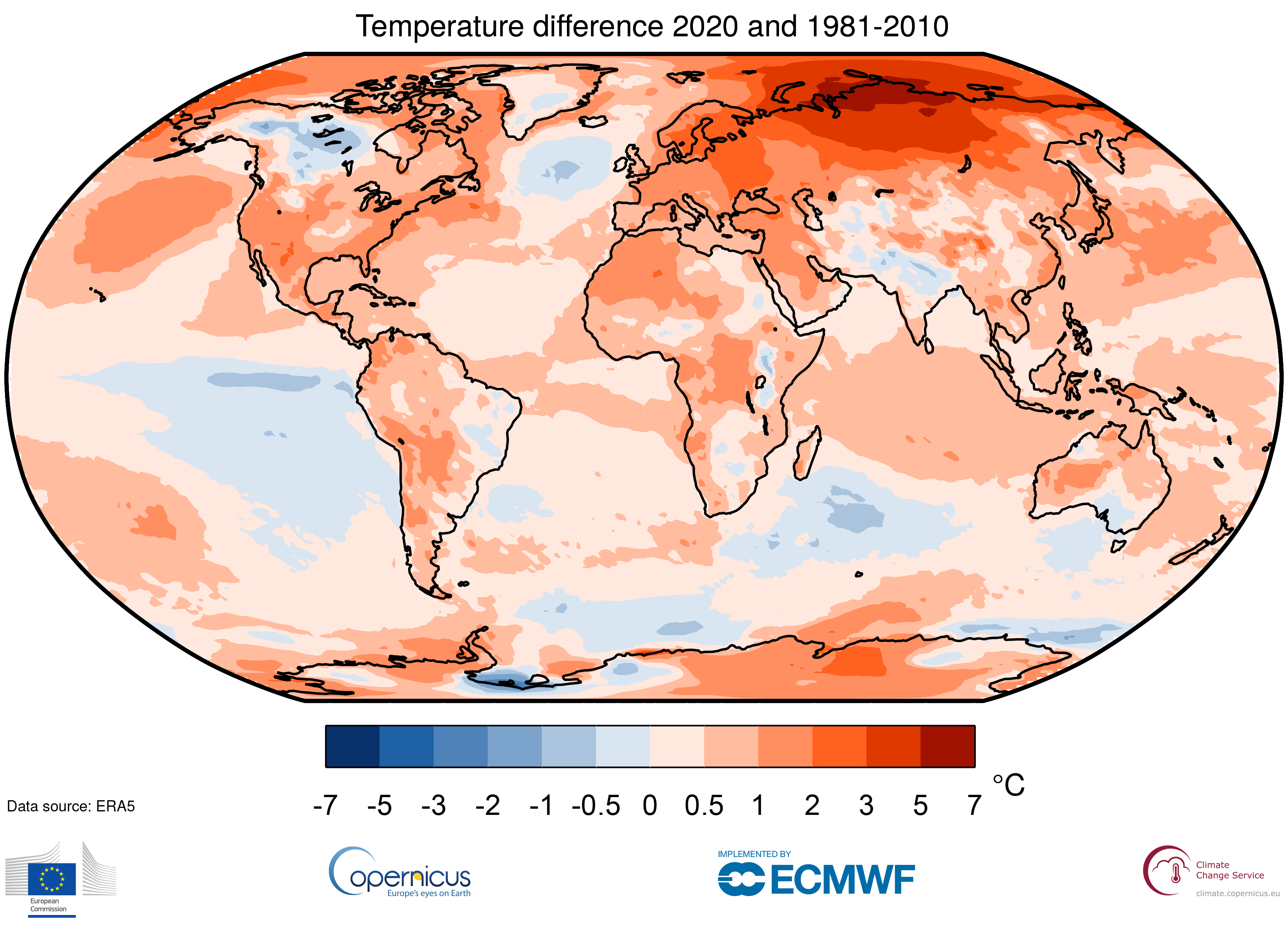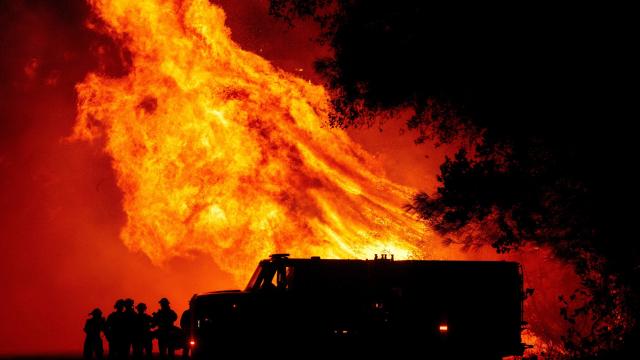The climate crisis doesn’t stop for anything, whether it’s an attempted coup, deadly pandemic, or economic collapse. Case in point: Last year was the hottest in human history, according to data released Friday.
The news is perhaps unsurprising, given the way 2020 went. But it also shows the dangerous pressure that has built up in the climate system after more than a century of carbon pollution and that even a one-year record drop in emissions isn’t enough.
The data comes via the European Union’s Copernicus Climate Change Service. It shows the global average temperature for 2020 was 1.25 degrees Celsius above pre-industrial baseline period of 1850 to 1900. That puts 2020 in a dead heat with 2016 for the hottest year on record. What’s striking about this year, though, is that a La Niña formed in the back half of the year. La Niña is a climate phenomenon where waters in the tropical eastern Pacific are cooler than normal, and it generally brings down the global average temperature. In comparison, 2016 was an El Niño year when the opposite holds true.

That puts 2020 in unprecedented territory and underscores just how rapidly the climate is evolving. The data from the EU lines up with data compiled and analysed using slightly different methods by the Japan Meteorological Agency (note the agency uses a different baseline for comparison). The only difference is JMA showed 2020 was a clear few-hundredths of a degree ahead of 2016 for hottest year on record, which is really just academic at that point. Both agencies are among the world’s premier climate monitoring institutions, and in the coming weeks, other top agencies in the U.S. and UK will release their annual data.
It’s never been clearer the climate is speeding into an increasingly unstable state. This past year saw unprecedented heat in the Arctic, massive fires in both hemispheres, and an unprecedented Atlantic hurricane season. Due to the coronavirus pandemic that ground the world to a halt, it also saw the biggest drop in emissions ever recorded year over year.
But the record-setting heat shows one of the most crucial pieces of context to understand the climate crisis: A single-year change in carbon emissions doesn’t matter, after decades upon decades of greenhouse gas pollution piling up. The atmosphere is like an Instant Pot. When the heating element is on, pressure keeps building. But if you unplug the machine, pressure doesn’t immediately evaporate. It takes a half hour or more for that to happen as it naturally releases.
In the atmosphere’s case, the heating element is the totality of human activity that releases greenhouse gases. Farming, air travel, heating and cooling, cement making, and even the electricity to fire up your Instant Pot just to bring it full circle. A one-year dip in emissions alone doesn’t substantially reduce the pressure that’s built up. Instead, it will take decades of sustained action to reduce the pressure while the climate system slowly processes all the excess carbon dioxide and other pollutants dumped into it.
That’s what makes the warning of this year so profound. We saw the hottest year on record despite getting a cooling assist from the climate and a steep drop in emissions. If world leaders don’t actively work to substantially and continually reduce carbon emissions, the risk of the pressure causing an explosion will only rise.
